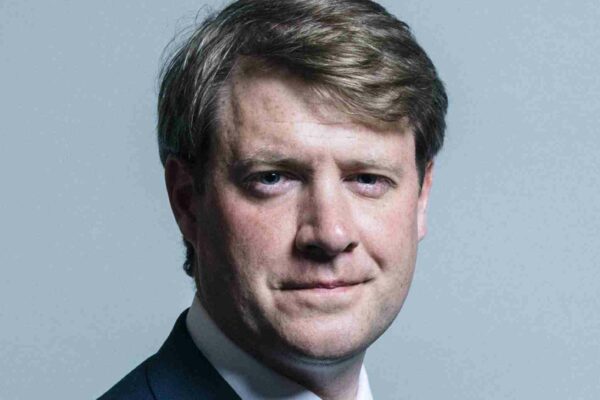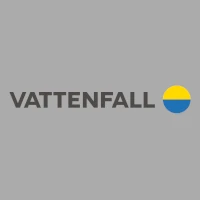Chair of the UK government’s recent Net Zero Review and former energy minister, Chris Skidmore MP, explains how the Westminster Climate Declaration can keep the UK at the forefront of...
Read MoreEnergy Security & Green Infrastructure Week in Parliament
Taking place on Tuesday 13th and Wednesday 14th January 2026.
Agenda
Agenda TBC in November 2025
- 09:00 GMT
- Live and Online
Opening addresses
Stuart R Broadley FEI, Chief Executive, Energy Industries Council. Followed by James Naish MP, Labour Member of Parliament for Rushcliffe.
- 09:30 -10:20 GMT
- Chair, Andy Walker
- Live, Online + Delegate Q&A
Decarbonising Heat: The Role of Heat Networks in Achieving Net Zero
Join us for an essential session featuring experts on the transformative potential of heat networks in decarbonising urban heat and power. Mike Reader MP, Labour Member of Parliament for Northampton South, will open with remarks on Labour's Green Prosperity Plan, emphasising the role of community-owned power and the environmental and economic benefits of heat networks. He'll discuss how these systems reduce energy waste, lower carbon emissions, and empower residents by cutting energy bills. Caroline Bragg, Chief Executive of The Association for Decentralised Energy, will highlight heat networks as a cost-effective solution for driving economic growth and achieving decarbonisation. She will call for a strategic government approach to spatial planning and sector growth in heat decarbonisation. Mike Pitts, Deputy Challenge Director for Net Zero Heat at Innovate UK, will address the challenges in rolling out heat networks and outline Innovate UK's Net Zero Heat programme, which aims to transition from gas heating to flexible, decarbonised solutions. He will focus on the importance of data, technology, and process innovation for supporting heat network growth. Bindi Patel, Head of Customer Experience & Communications at Vattenfall Heat UK will explore how heat networks offer a fair transition to net zero that also supports local economic growth and direct community benefit, but compared to other European countries, heat networks provide a small amount of heat demand in the UK. Zoning is a step in the right direction, but there remains an incohesive policy landscape that creates complexity for both developers and customers seeking to connect to heat networks.
- 10:30 -11:20 GMT
- Chair, Andy Walker
- Live, Online + Delegate Q&A
The Future of Energy Storage: Balancing Flexibility and Duration for Net Zero
Join us for an engaging session featuring leading experts discussing the critical role of energy storage in achieving the UK’s net zero goals. Prof. Martin Freer, Chief Executive of The Faraday Institution, will explore two essential approaches to managing the intermittency of future electricity generation: enhancing flexibility in consumption and developing significant-scale storage solutions. He will discuss the importance of household demand management through in-home battery storage and the role of electric vehicle batteries, as well as the contributions of grid-scale storage from large battery installations. Prof. Seamus Garvey, Professor of Dynamics from the University of Nottingham will highlight the diverse landscape of energy storage solutions required for a net zero UK. He will outline the necessity of four distinct storage duration categories—very short, short, medium, and long—and present a cost-optimised framework for their funding. With projections indicating that spending on energy storage could rival that of PV panels and wind turbines, he will argue for a re-evaluation of funding allocations to ensure a balanced and effective energy storage system. Naomi Baker, Senior Policy Manager at Energy UK, will explore the ‘level playing field’ in energy markets, addressing how market mechanisms can lower prices and whether the 2030 target will aid or hinder progress. She will also highlight the varying market readiness among flexible energy contenders, emphasising the need for subsidies or regulatory changes. Tony Dye, Chief Technology Officer at Epicam will discuss his development of scalable longer duration Liquid Air Energy Storage and Regeneration (LAESAR) technology with RTE potential of 68%, targeting storage provision to 10% of grid capacity for global power grids. LAESAR also incorporates direct capture of CO2 and CH4 from process air. It can transform Wind turbines into local energy storage sites, eliminating curtailment and simplifying grid management, forming a global population of wind facilities capable of extracting 10 gigatonnes/yr. of CO2 to repair Earth’s climate.
- 11:30 -12:20 GMT
- Chair, Andy Walker
- Live, Online + Delegate Q&A
Modern Grid: Building Resilient Systems for a Cleaner Future
Join us for an engaging session that examines the crucial need to modernise the grid and the interplay between energy and transport in building a sustainable and resilient future. Peter Ridge, Associate Director of Power at Cundall, will emphasise the importance of collaboration across industries and sectors, introducing his concept of "joining the dots." He will explain how integrating diverse elements—such as grid capacities, land suitability, and regulatory frameworks—can lead to the development of resilient energy systems that effectively respond to the evolving needs of society. Prof. Phil Blythe CBE, Director at DARe and the former Chief Scientific Adviser at the Department for Transport, will discuss the challenges posed by the electrification of various transport modes. He will highlight concerns regarding the electricity supply and distribution systems and their potential impact on the resilience of transport infrastructures. David Boyer, Director - Electricity Networks at the Energy Networks Association, will be outlining the current focuses and achievements of Britain’s network operators in modernising the Grid, from innovation to flexibility to connections reform, whilst still ensuring resilience and operability.
About The Event
Energy Security and Green Infrastructure Week in Parliament will curate a series of events in and around Parliament, including roundtable discussions and exclusive networking events. If your organisation would like to host a roundtable or sponsor a networking event, please contact us.
Ambassador
“I am excited to be apart of Energy Security & Green Infrastructure Week where the UK’s top industries will showcase the universal opportunities the net zero transition is creating. The UK is a world leading destination for green investment and this week will be a brilliant addition to our net zero transition story. It was Global Britain which led the way when Net Zero was signed into law, let’s now take full advantage of the opportunities the energy transition is bringing.” Rt Hon Chris Skidmore OBE, former Energy Minister.
Ambassador
“I am delighted to see initiatives like Energy Security & Green Infrastructure Week championing the need for further investment in green infrastructure. The UK is in a prime position to capitalise on the move towards Net Zero and ensuring we have the right infrastructure in place will be key to achieving this.” Rt Hon Greg Clark, former Energy Secretary.
What Else We Do
We also organise Net Zero Week, and Net Zero Week in Parliament, held annually in July. Everything we do is focused on helping all stakeholders unlock the benefits of reaching net zero.
THOUGHT LEADERSHIP
Climate Perspectives
Britain needs more large-scale nuclear reactors
We have never needed nuclear power more than we need it now. Tom Greatrex, chief executive of the Nuclear Industry Association, believes that, alongside building the next generation of small...
Read MoreDestination net-zero: off-grid energy and the role of renewable liquid gases
Decarbonising heating has been and remains one of the most challenging aspects of meeting climate targets. Sophia Haywood, head of advocacy and communications at Dimeta, calls for the government to...
Read More2024 Sponsors
Sponsor






